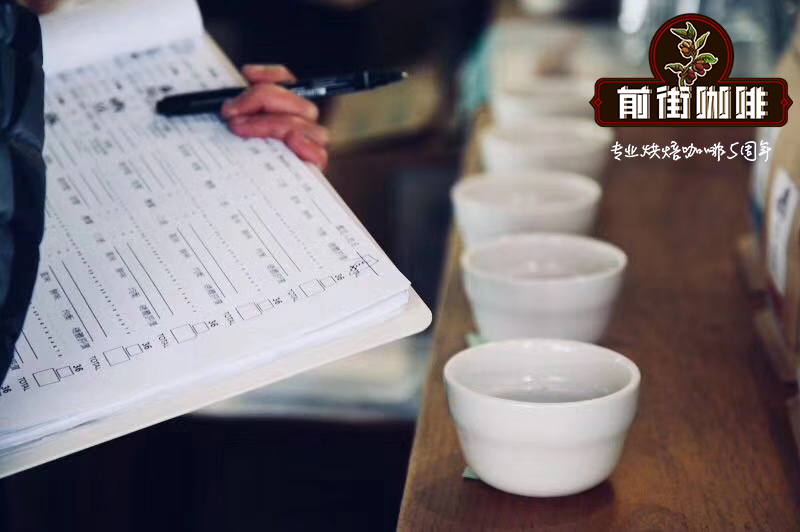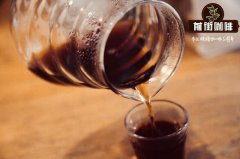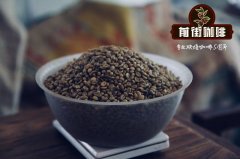Legendary Nicaraguan Coffee Variety-Java Variety Java Story _ what is the push of Nicaraguan Coffee

Professional coffee knowledge exchange more coffee bean information please follow the coffee workshop (Wechat official account cafe_style)
There is a legendary coffee variety in Nicaragua-- Java variety Java.
Java may have the most complex history of so many coffee varieties, if not rosy summer.
Although it is called Java, it is by no means an Indonesian bean. Java originated in Ethiopia and was introduced to Indonesia by the Dutch in the 19th century. In the mid-20th century, the seeds were collected in Indonesia by the famous breeder Porteres and sent to Cameroon in Africa, where another breeder in Cameroon, Pierre Bouharmont, found that Java was partially resistant to coffee berry disease, a coffee disease that afflicts Africa and did not require much fertilizer. After 20 years of optimal selection, Cameroon released the bean seed for farmers in 1980-90.
After genetic fingerprinting of the molecular markers, the research institute has been able to conclude that Java is from the native Ethiopian variety Abysinia. If planted at high altitude, Java will have excellent quality and can even compete with Rose Summer!
In 1991, Java was sent to Costa Rica through breeder Benoit Bertrand to provide small coffee farmers with new varieties that were less fertilized and resistant to berry disease, even though there was no serious berry disease in Central America. With this in mind, the seeds were sent to all the countries of the PROMECAFE Alliance, but never really promoted cultivation in those countries, and the first Central American country to really release was Panama.
Nicaragua should also get this variety in the 1990s, but it has not been promoted to farmers. Java, Nicaragua, as we know it today, is also known locally as Javanica, and according to the Mierisch family Erwin Mierisch, his father "rescued" a batch of Java seeds from research institutions. At that time, the research institution got some African seeds and experimented in their garden nursery, but due to years of war in Nicaragua, the institution could no longer operate. The father and son met a man selling a 20-pound bag of seeds "with Variedad Java on it" at the institute that closed down. Out of curiosity, they bought the coffee and finally successfully produced Java after several years of experimental cultivation.
Java's bean shape is quite special, similar to Ethiopia's long bean (Longberry), the tree shape is similar to the rose summer tree, the main branch is at right angles to the trunk, and the bean shape is also similar to the rose summer, with the cup flavor showing the rare floral aroma of South American beans. The Mierisch family won the COE runner-up with Java in 2008, and now more and more farms in Nicaragua are growing Java, making it an important producer in Central America.
Nicaraguan coffee beans Promittido farm solarization Java batch
Coffee farmer Luis Baradarez (Luis Alberto Balladarez) is a well-known figure in Nicaragua, his farm and washing plant have won many extraordinary cup Cup of Excellence. When Louis got the extraordinary Cup for the first time, he donated all the proceeds from the bidding to the local municipal government to finance the construction of housing in the community. he was a noble and excellent farmer.
He has three farms: La Esperanza, Un Regalo de Dios, and Prometheus (promised Lo Prometido), and his name suggests that he is a devout Christian. Divine Gift won No. 3 in COE in 2010, No. 13 this year, and hope to win No. 19 in 2010. What is even more rare is that not only does his own farm have a brilliant record, but his washing factory, Beneficio Las Segovias, has also achieved outstanding results in dealing with cherries, a nearby coffee farmer, and teaching techniques, with coffee coming out of his washing plant in fourth place in 2014 and 2015. God-given 2010 victory, the score is 91.31!
Luis Baradarez's farm and washing plant are located in the Nueva Segovia producing area. This coffee comes from Prometheto Farm, located in the Tibito / Dipilto-Jalapa Mountains, between 1500 and 1670 meters above sea level, and the microclimate is shrouded in clouds. The residents come from La Soledad, a community in Monsanti, close to between Mengshantii and Di Bituo. Promethea covers an area of 28 hectares, 12 hectares grow coffee, and 16 hectares in the north are full of holly forests and pines.
Promethea is divided into the following blocks, producing different batches of varieties, of which Java is probably the rarest variety:
La Entrada batch-Red Kaduai (Red Catuai)
Las Calas batch-Red Kaduai (Red Catuai)
Las Minas-Mara Kadura (Maracaturra) and Java (Java)
El Caracol-Mara Kadura (Maracaturra) and Pacamara (Pacamara)
El Africano-SL28 and Red Kaduai (Red Catuai)
El Java-Java (Java)
New West Govia, close to the Honduran border, is the best producing area in Nicaragua, and almost all of the top five of each extraordinary Cup are won by New West Gove.
Java sun on Promittido farm in Nicaragua
Nicaragua Lo Prometido Java natural
Country of production: Nicaragua, Nicaragua
Producing area: Mengshanti Mozonte; New West Govia Nueva Segovia
Farm: Prometheto Lo Prometido
Farmer: Luis Alberto Balladarez
Washing plant: West Govia treatment plant Beneficio Las Segovias
Altitude: 1500-1670 m
Variety: Java Java
Treatment: natural in the sun
Nicaraguan coffee bean brand recommendation
The Nicaraguan coffee beans roasted on Qianjie Coffee-Fairview Manor washing [Maracadura] is fully guaranteed in terms of brand and quality. And more importantly, the performance-to-price ratio is extremely high, each pack of 227 grams, the price is only 90 yuan. Calculated on the basis of 15 grams of coffee beans per cup, a bag can make 15 cups of coffee, which costs only about 6 yuan per cup, which is recommended by conscience compared to the price of hundreds of cups sold in cafes.
Qianjie coffee: Guangzhou bakery, the store is small but a variety of beans, you can find a variety of unknown beans, but also provide online store services. Https://shop104210103.taobao.com
Important Notice :
前街咖啡 FrontStreet Coffee has moved to new addredd:
FrontStreet Coffee Address: 315,Donghua East Road,GuangZhou
Tel:020 38364473
- Prev

Nicaraguan Coffee Variety Maracadura Information Price introduction _ Nicaraguan Coffee good?
Professional coffee knowledge exchange more coffee bean information please follow Coffee Workshop (Wechat official account cafe_style) Nicaraguan Coffee Bean-Picuna Farm La Picona Malakadura Experimental batch Pickona Farm (Finca La Picona) located in Dipilto, the northernmost part of Nicaragua, with an area of less than 5 hectares and an elevation of 1300
- Next

Nicaraguan Black Forest Coffee Manor Information introduction _ how much is a pack of Nicaraguan coffee beans
Professional coffee knowledge exchange more coffee bean information please follow the coffee workshop (Wechat official account cafe_style) taste Nicaraguan coffee bean flavor, Black Forest Coffee Manor Nicaragua is a famous coffee producing area, coffee lovers travel to Nicaragua, must go to the coffee province Matagalpa (Matagalpa), which has a long history of coffee farm Selva Negra near
Related
- Detailed explanation of Jadeite planting Land in Panamanian Jadeite Manor introduction to the grading system of Jadeite competitive bidding, Red bid, Green bid and Rose Summer
- Story of Coffee planting in Brenka region of Costa Rica Stonehenge Manor anaerobic heavy honey treatment of flavor mouth
- What's on the barrel of Blue Mountain Coffee beans?
- Can American coffee also pull flowers? How to use hot American style to pull out a good-looking pattern?
- Can you make a cold extract with coffee beans? What is the right proportion for cold-extracted coffee formula?
- Indonesian PWN Gold Mandrine Coffee Origin Features Flavor How to Chong? Mandolin coffee is American.
- A brief introduction to the flavor characteristics of Brazilian yellow bourbon coffee beans
- What is the effect of different water quality on the flavor of cold-extracted coffee? What kind of water is best for brewing coffee?
- Why do you think of Rose Summer whenever you mention Panamanian coffee?
- Introduction to the characteristics of authentic blue mountain coffee bean producing areas? What is the CIB Coffee Authority in Jamaica?

